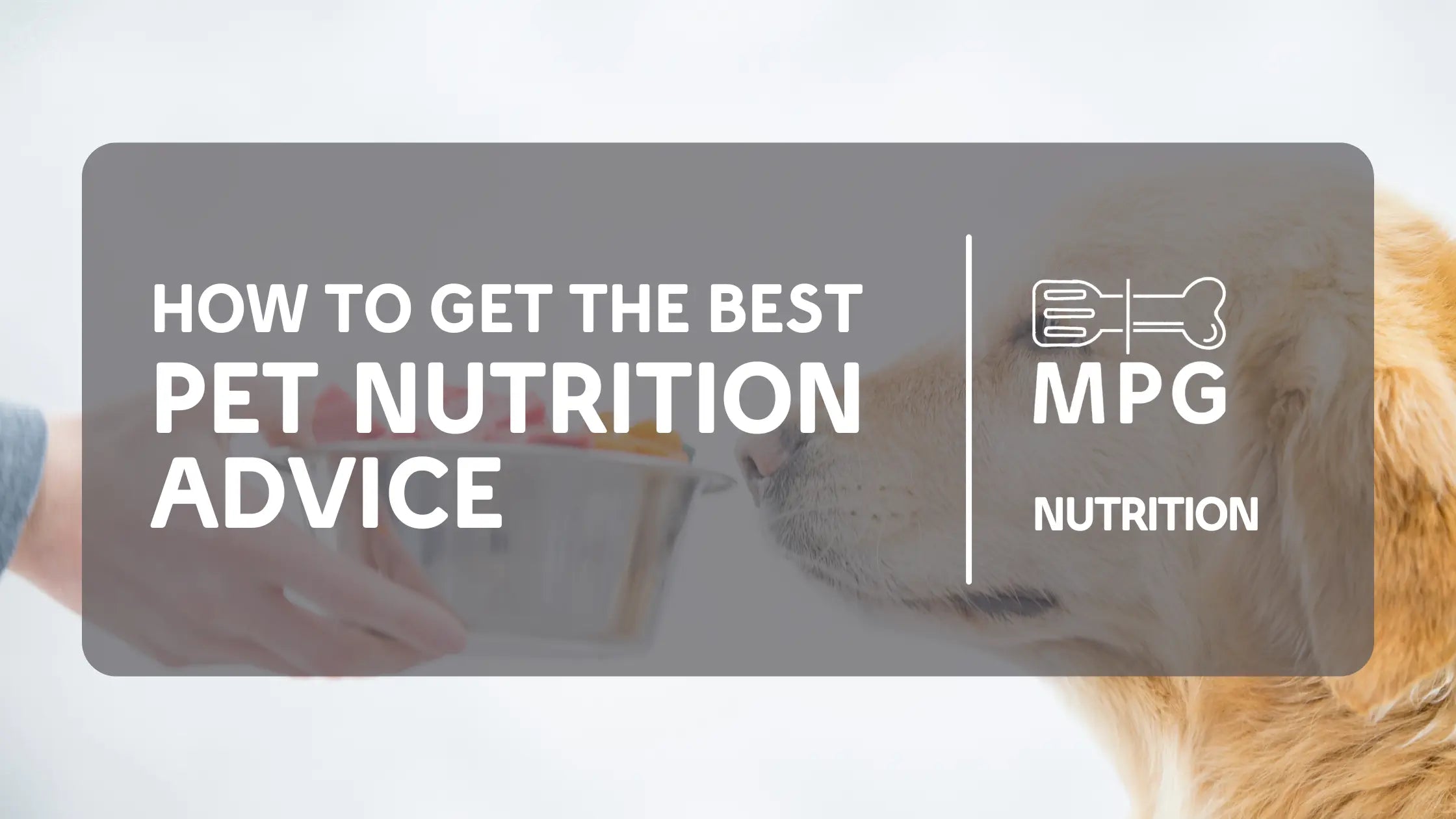
How to Get the Best Pet Nutrition Advice
Why a Veterinary Nutritionist or Veterinary Nutrition Specialist is the Best Resource for Pet Nutrition and Fresh Diet Options
BY DANIELLE CONWAY, DVM, ACVIM BOARD-ELIGIBLE
With so much noise and conflicting information out there, it’s crucial to seek advice from true experts in animal health and nutrition when it comes to your pet’s diet.
Veterinary nutritionists and certified veterinary nutrition technicians are the gold standard. Here’s why their guidance is invaluable:
Specialized Education and Training
Certified veterinary nutrition technicians undergo specific education in pet nutrition, equipping them to support vets and pet owners in making informed dietary decisions. Veterinary nutritionists undergo rigorous education in animal nutrition, similar to how human nutritionists or dietitians do. Veterinary nutritionists complete advanced degrees and certifications that deepen their understanding of how nutrition impacts animal physiology, health, and disease management.
Veterinary nutritionists are able to go a step further than many general veterinarians (who may not have extensive nutrition training), and can create customized diets for pets based on their specific needs — whether your dog needs a weight management plan or your cat requires a kidney-friendly diet.
Evidence-Based Recommendations
Veterinary nutritionists provide advice rooted in scientific research, not trends or marketing. They rely on peer-reviewed studies to inform their recommendations, ensuring that your pet’s diet supports their long-term health. With their guidance, you can feel confident that the advice you’re receiving is based on proven science, not guesswork.
Tailored to Your Pet’s Unique Needs
Every pet is unique, with dietary needs influenced by factors like breed, age, weight, activity level, and health conditions. A veterinary nutritionist will assess your pet’s lifestyle and health status to create a personalized diet that provides the right balance of nutrients, preventing deficiencies and excesses that can lead to health issues.
Guidance for Complex Health Conditions
If your pet has a medical condition like diabetes, kidney disease, or food allergies, their nutritional needs become more complex. Veterinary nutritionists are skilled in developing diets that support not only overall health but also manage specific conditions. They can recommend therapeutic diets, supplements, or feeding strategies that work in harmony with your pet’s treatment plan, providing essential support for their health.
Long-Term Support and Monitoring
One of the greatest benefits of working with a veterinary nutritionist is their ongoing support. They’ll monitor your pet’s progress, adjusting the diet as needed over time to meet changing needs. This level of oversight is key in preventing health issues and keeping your pet in optimal condition as they age or as health concerns arise.
Top Three Resources for Reliable Pet Nutrition Advice:
To ensure the best care for your pet, seek advice from professionals with verified credentials:
- Veterinary Nutritionists: These are veterinarians with additional board certification in animal nutrition. They’re experts in the field and are essential for pets with nutrient-responsive diseases requiring specialized diets and regular check-ups.
- Certified Veterinary Nutrition Technicians: These technicians are trained in animal nutrition fundamentals, assisting veterinarians in dietary planning and providing valuable support.
- Your Regular Veterinarian: While not always specialists in nutrition, veterinarians can guide you toward good food choices and refer you to a nutritionist when needed.
Who Not to Seek Nutrition Advice From:
For your pet’s health and safety, avoid seeking fresh or homemade diet advice from social media influencers or uncredentialed “canine nutritionists.” Many online certifications lack oversight by qualified veterinary nutritionists and don’t provide the expertise needed to offer sound advice.
Be cautious of those in the veterinary community who use fear tactics or absolute statements to promote specific diets. Social media often pushes one-sided, emotional appeals to sell products, which can be misleading. If you encounter advice that insists a single diet is "best" for all pets, scroll on.
Good nutrition is individual, and credible professionals take into account your pet’s unique needs, your budget, and your preferences. If a fresh diet isn’t practical, quality kibble can be a healthy option, too—don’t be swayed by those who shame or use scare tactics against balanced, scientifically supported diets.
GOOD NUTRITION IS INDIVIDUAL, AND CREDIBLE PROFESSIONALS TAKE INTO ACCOUNT YOUR PET’S UNIQUE NEEDS, YOUR BUDGET, AND YOUR PREFERENCES.
Final Thoughts
Navigating pet nutrition can feel overwhelming with so much conflicting advice out there. The best way to cut through the noise is to rely on professionals with specialized training in animal nutrition. By consulting with a veterinary nutritionist or certified veterinary nutrition technician, you ensure your pet receives tailored, trustworthy advice that meets their health needs.
After all, your pet’s health and happiness depend on what’s in their bowl. Getting it right is worth the effort. My Pet Grocer is here to help you explore fresh pet food with confidence.
